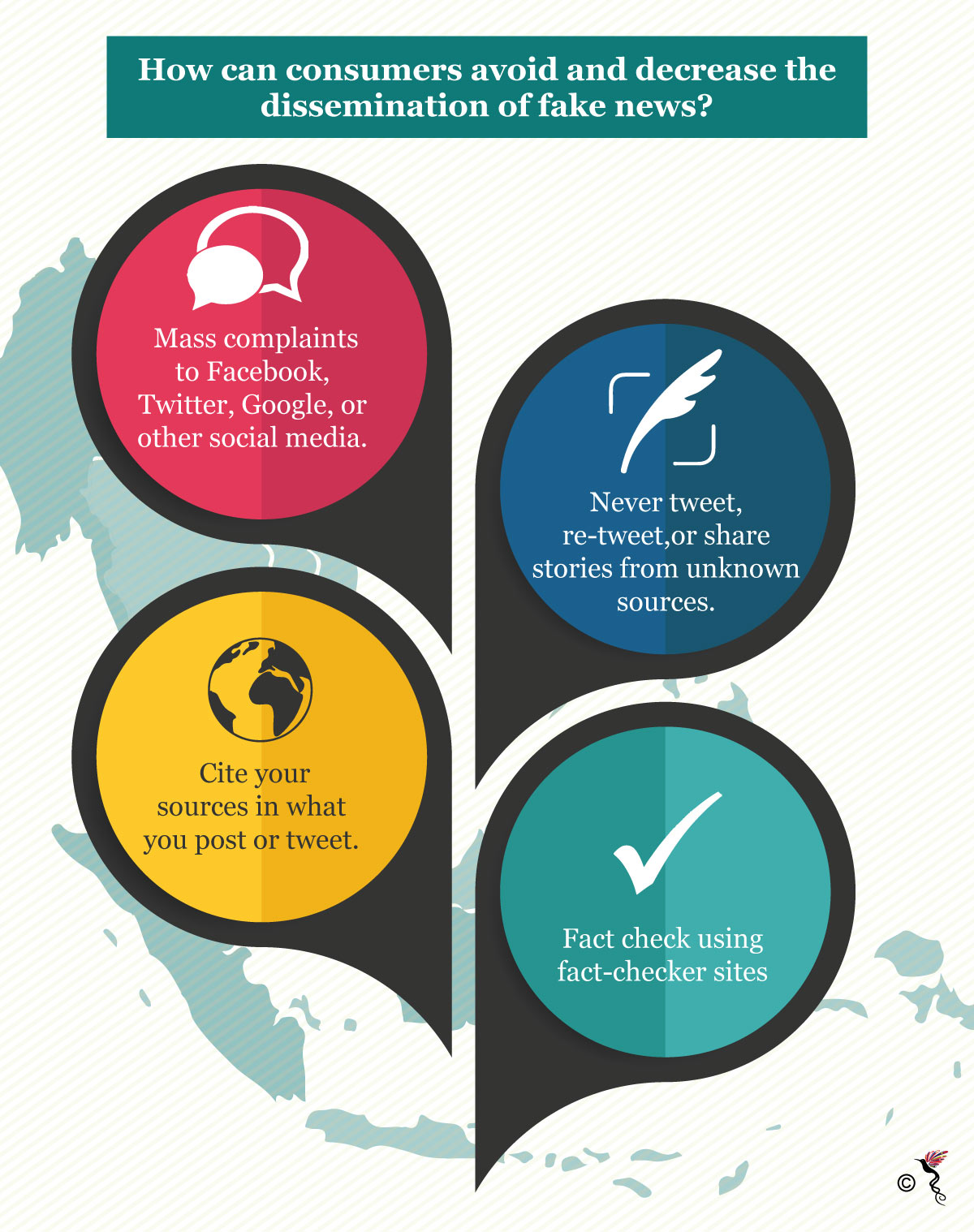Every day a large number of people consume “fake news” around the region. This is nothing new, especially because social media makes it difficult for consumers to differentiate between real and fictional information.
While the internet has enabled the sharing of knowledge in ways that previous generations could only have dreamed of, it also sees consumers devouring and believing information that is not just inaccurate, but totally made up.
Taking the US elections and Brexit as examples which caused an upheaval of information or rather, misinformation between consumers via social media platforms, the dissemination of fake news around the Southeast Asian region has also affected consumers on many terrains including politics, and other reported news.
Albeit on a smaller scale, the spread of fake news can affect the community in more ways than one such as curbing the freedom of expression and the risk of wrongful indoctrination that can poison younger minds.
In e-mail correspondence with The ASEAN Post, Ed Legaspi, Executive Director of Southeast Asian Press Alliance, stated that, “Fake news affects freedom of expression because it is used by governments to undermine the independence and critical work of the media. Labeling certain media and journalists as purveyors of fake news have become pretexts for crackdowns (like in Cambodia recently), and against independent and alternative media, in places like Vietnam, where the government owns or controls the media.”
“Ultimately, it is the public that suffers the right to access to information is (in many countries: remains) curtailed, and their right to participate in government is affected,” he added.
Combat measures by ASEAN governments
Various governments around the region have measures to combat the propagation of fake news.
The Malaysian Communications and Multimedia Commission (MCMC) has launched a site called sebenarnya.my to demystify news and facts. The MCMC also launched an initiative to teach media literacy, responsible internet use, and digital safety through its Klik Dengan Bijak (which translates into "click wisely") Programme.
Lao on the other hand, has an Internet law that enforces a stricter control over media in the country. This law has been criticized for likely stifling the freedom of speech of the public. Article 9 of the decree openly prohibits the posting and sharing of content that features false and misleading information against the Lao People’s Revolutionary Party, undermining the peace, independence, sovereignty, unity, and prosperity of Lao PDR and information that encourages citizens to become involved in terrorism, murder, and social disorder amongst others.
There are also current legislative efforts in Singapore that will focus on the prevention and criminalization of spreading fake news. While still in the initial drafting stages, the considerations revolve around criminalizing the malicious spread of news, as well as its for-profit arrangements.

Steps to decrease dissemination of fake news.
In Vietnam, Facebook has committed to working with the government to take down content it deems to be in violation of domestic laws. However, this move has been criticized as a form of censorship of government criticism. Apart from that, the ASEAN member state has also levied punishments for “antistate propaganda” or “reactionary ideologies” on social media.
According to Ed, despite these efforts, “the first, and perhaps the easiest, action by governments is to support - by simply tolerating- independent journalism, and eliminate restrictions that prevent the media from doing their role. They must allow media to regulate themselves to promote professionalism and ethics that are key to fulfilling their role as the fourth estate. A critical and independent media is also the best weapon to fight against misinformation and disinformation, including by the government.”
What can consumers do to combat fake news?
“Media literacy is the best way to combat fake news. This awareness can be built by developing the habit of fact checking. However it is a slow, person-by-person process and societies are still adjusting to the unprecedented amount of information each person is able to access via the internet, and especially through social media. So it remains an uphill struggle,” explained Ed.
Recommended stories:
